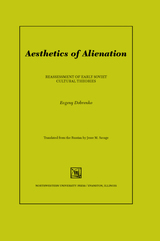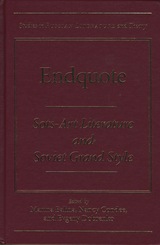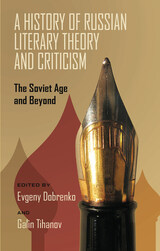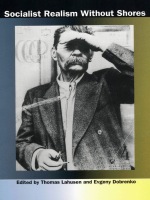
In chapters on Proletkult, RAPP, LEF, and Pereval, Dobrenko reexamines the theories generated by these major Marxist literary groupings of the early Soviet Union. He shows how each approached the problems of literature's response to the presumed social mandate of the young communist society, and how Socialist Realism emerged as a conglomerate of these earlier, revolutionary theories. With extensive and detailed reference to supporting testimony and documents, Dobrenko clearly demonstrates how Socialist Realism was created from within the revolutionary culture, and how this culture and its disciples fully participated in this creative process. His work represents a major breakthrough in our current understanding of the complex sources that contributed to early Soviet culture.


This volume assembles the work of leading international scholars in a comprehensive history of Russian literary theory and criticism from 1917 to the post-Soviet age. By examining the dynamics of literary criticism and theory in three arenas—political, intellectual, and institutional—the authors capture the progression and structure of Russian literary criticism and its changing function and discourse.
The chapters follow early movements such as formalism, the Bakhtin Circle, Proletklut, futurism, the fellow-travelers, and the Russian Association of Proletarian Writers. By the cultural revolution of 1928, literary criticism became a mechanism of Soviet policies, synchronous with official ideology. The chapters follow theory and criticism into the 1930s with examinations of the Union of Soviet Writers, semantic paleontology, and socialist realism under Stalin. A more “humanized” literary criticism appeared during the ravaging years of World War II, only to be supplanted by a return to the party line, Soviet heroism, and anti-Semitism in the late Stalinist period. During Khrushchev’s Thaw, there was a remarkable rise in liberal literature and criticism, that was later refuted in the nationalist movement of the “long” 1970s. The same decade saw, on the other hand, the rise to prominence of semiotics and structuralism. Postmodernism and a strong revival of academic literary studies have shared the stage since the start of the post-Soviet era.
For the first time anywhere, this collection analyzes all of the important theorists and major critical movements during a tumultuous ideological period in Russian history, including developments in émigré literary theory and criticism.

The contributors here argue that socialist realism has never been a monolithic art form. Essays demonstrate, among other things, that its literature could accommodate psychoanalytic criticism; that its art and architecture could affect the aesthetic dictates of Moscow that made "Soviet" art paradoxically heterogeneous; and that its aesthetics could accommodate both high art and crafted kitsch. Socialist Realism without Shores also addresses the critical discourse provoked by socialist realism—Stalinist aesthetics, "anthropological" readings; ideology critique and censorship; and the sublimely ironic approaches adapted from sots art, the Soviet version of postmodernism.
Contributors. Antoine Baudin, Svetlana Boym, Greg Castillo, Katerina Clark, Evgeny Dobrenko, Boris Groys, Hans Günther, Julia Hell, Leonid Heller, Mikhail Iampolski, Thomas Lahusen, Régine Robin, Yuri Slezkine, Lily Wiatrowski Phillips, Xudong Zhang, Sergei Zimovets
READERS
Browse our collection.
PUBLISHERS
See BiblioVault's publisher services.
STUDENT SERVICES
Files for college accessibility offices.
UChicago Accessibility Resources
home | accessibility | search | about | contact us
BiblioVault ® 2001 - 2024
The University of Chicago Press









